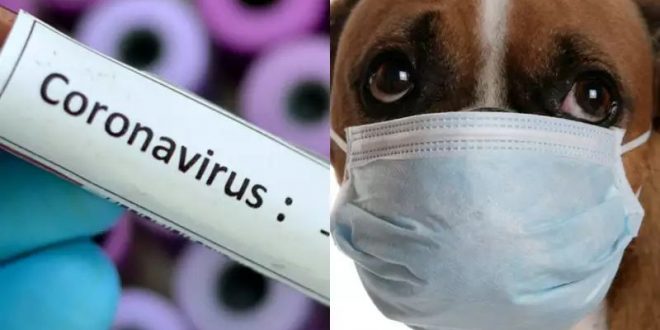It is not yet established if myocarditis, a heart condition, was caused by the coronavirus infection, although researchers have underlined the need for recognizing the association.
The fact that the coronavirus SARS-CoV-2 can infect animals, including pet dogs, was established early in the Covid-19 pandemic. Now the first few cases have been reported of dogs being infected with the so-called “UK variant” of the coronavirus, otherwise known as B.1.1.7. What is of particular concern is that some of the infected animals have also been diagnosed with a heart condition known as myocarditis. It is not yet established if this condition was caused by the coronavirus infection, although researchers have underlined the need for recognizing the association.
Where did the dogs get infected?
The infections have been detected in two places — in the UK and the US — and reported in separate studies. The humans of all the pets had tested positive before the infection was detected in animals, suggesting human-to-animal transmission.
One study is part of an ongoing project undertaken by the Texas A&M College of Veterinary Medicine & Biomedical Sciences and funded by the US Centers for Disease Control, that involves surveillance of pets living in “high risk” households with people who have Covid-19. Researchers detected infection with the B.1.1.7 variant in a black lab-mix dog from a household where their human had been diagnosed with Covid-19 in mid-February.
The heart condition was detected among a number of dogs in the other study, conducted at The Ralph Veterinary Referral Centre near London. A dog, which had presented with myocarditis, subsequently tested positive for the B.1.1.7 strain of SARS-CoV-2, while three more were found to have antibodies against the virus. The study is awaiting peer review and is currently on a preprint server.
What is this heart condition?
Myocarditis is an inflammation of the heart muscle that decreases the ability of the heart to pump blood normally. It can be caused by a number of factors, including a viral infection. The severity of symptoms varies; in extreme cases, patients with myocarditis can suddenly lose consciousness or show signs of heart failure.
What is its connection with Covid-19?
While the UK paper does not establish the coronavirus infection as the cause for myocarditis in the animals, it notes that among people, myocarditis associated with the multisystem inflammatory syndrome is a well-recognized complication of Covid-19. “The association between myocarditis and B.1.1.7 152 infections in domestic pets has to be acknowledged and addressed,” it says.
In fact, the UK animals were diagnosed with myocarditis first, and the virus infection later. Veterinarians at RVRC noticed a sudden rise in the number of domestic dogs presented with myocarditis.
“This sudden surge of cases appeared to mimic the curve and timeline of the COVID-19 human pandemic in the UK due to the B.1.1.7 variant… Notably, most owners and handlers of these pets with myocarditis had developed Covid-19 respiratory symptoms within 3-6 weeks before their pets became ill, and many of these owners had tested PCR-positive for Covid-19,” they write.
The researchers examined three dogs, among which three tested positive for B.1.1.7, and three more showed antibodies.
Are humans or their pets at risk?
Throughout the pandemic, several experts who have studied coronavirus infection in animals have observed that pets appear to be more at risk of infection from humans than the other way round. Among pets, cats appear to be more vulnerable than dogs because the ACE2 protein on their cell surface, as in humans, facilitates the first contact with the coronavirus spike protein.
The Texas researchers too have highlighted the fact that pets appear to be more vulnerable than humans.
“Based on the information available to date, the risk of pets spreading SARS-CoV-2 to people is considered to be low,” the Texas A&M University said on its website.
People with suspected or confirmed cases of COVID-19 should avoid contact with pets and other animals to protect them from infection and illness. If contact cannot be avoided, people with COVID-19 should wear a mask around pets and wash their hands before and after interacting with them.”
How are the animals infected with the B.1.1.7 strain doing?
In Texas, neither animal showed any overt sign of illness at the time of their positive tests.
“These companion animals were retested March 11, at which time the owner disclosed that the dog and cat had both been sneezing over the past weeks; the owner is now reporting that both are in good health,” the University said.
In the UK study, none of the 11 animals with myocarditis developed any influenza-like symptoms, and they all clinically improved within a few days of intensive care. But one cat suffered a relapse one week after discharge, and her humans chose to euthanize her.
Please note: This story has not been edited by DogExpress team
Source: Indian Express

 DogExpress
DogExpress

















 in Chandigarh, India.
in Chandigarh, India. 
